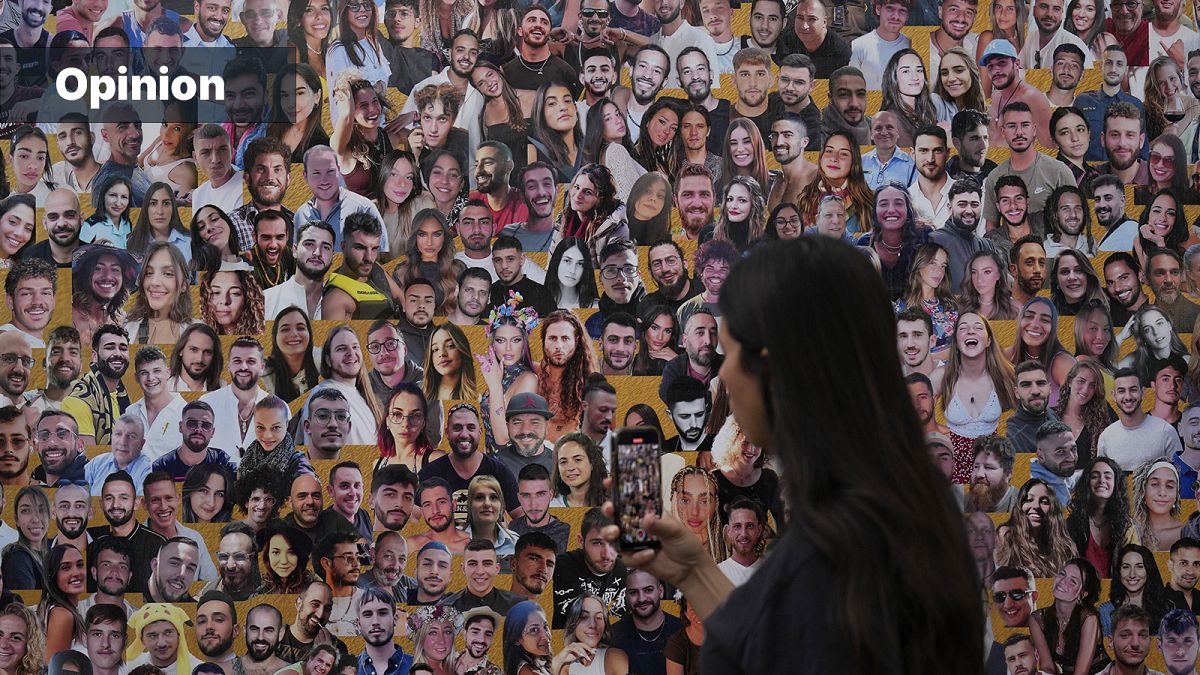By Dr Cochav Elkayam-Levy, founder and chair, Civil Commission on 7 October Crimes by Hamas against Women and Children
Published on
•Updated
The opinions expressed in this article are those of the author and do not represent in any way the editorial position of Euronews.
Just recently, the United Nations officially recognised the sexual crimes committed by Hamas on and after 7 October. Hamas has been placed on the UN blacklist of armed groups responsible for systematic rape and sexual violence in conflict.
This recognition is not only a diplomatic achievement; it is a direct rebuke to all those who tried to deny, minimise, or obscure these atrocities. From now on, there can be no doubt: rape and sexual torture were, and remain, central to Hamas’ campaign of terror.
As women who stepped into this arena in the earliest days, we know how difficult it was to reach this moment. The silence and denial when the victims were Israeli women was staggering. Misogyny, antisemitism, and politics once again pushed women to the margins, this time by many of those who should have defended them most.
This milestone is the result of months of painstaking work with the UN’s Special Representative on Sexual Violence in Conflict, led by Israel’s Ministry of Foreign Affairs, the National Security Council, and Israel’s UN mission.
It was reinforced by voices from civil society, including First Lady Michal Herzog, feminist leaders in Israel and abroad, and the tireless advocacy of women’s organisations worldwide. It is a collective achievement, built against the odds.
Without criminal accountability, this remains a symbolic gesture
But recognition, as vital as it is for healing and justice, cannot be where we stop. Behind every UN document and diplomatic statement is a woman who was raped, a man who was tortured, a family destroyed. Each acknowledgement carries the silenced voice of a victim whose dignity was shattered in unimaginable ways.
As those who have been bearing witness to these crimes for months, we carry their pain with us. They are present in every step we take, reminding us that these crimes cannot be relegated to a footnote in history.
This recognition is, in many ways, only the end of the beginning. The next step, the hardest one, must be prosecution and compensation for those who suffered most.
Accountability is needed now not only of the perpetrators on the ground, but of those who planned, incited, financed, and celebrated the sexual violence in a sadistic display of humiliation.
Without criminal accountability, this recognition risks becoming a symbolic gesture. The road to prosecution will be difficult, but this milestone is a major achievement that gives us hope that the victims will be heard and their voices will endure.
This is not only Israel’s struggle. As Bosnia, Rwanda, and the Yazidi genocide have shown, sexual violence is a weapon of terror.
The international community can and should respond accordingly. The responsibility cannot rest on Israel alone. Justice mechanisms combining local and international prosecutors are needed to hold Hamas leaders and their enablers accountable beyond Israel’s borders.
Not words, actions
This is a test for humanity. If the world fails once again, the message to terrorist organisations will be clear: rape works.
We have been working precisely for this moment, the day after recognition, when the fight shifts to justice. The UN’s decision marks an important turning point.
Now Israel and the international community will be judged not by words, but by actions: whether they prosecute, and whether they create mechanisms for joint accountability across jurisdictions in Israel, Germany, the United States, the United Kingdom, France, and beyond.
7 October was unique in that many of the victims were civilians from multiple countries. Responsibility is shared.
Hamas’s leadership is not only in Gaza or Israeli prisons; it sits in Doha and other capitals. They must not be allowed to act with impunity.
Now that the world has recognised what happened, the voices of those who suffered must lead us to fight for a world where women’s lives truly matter. Their voices must guide us, so that their suffering is not in vain and their courage helps build a safer world for women everywhere.
Dr Cochav Elkayam-Levy is the founder and chair of the Civil Commission on 7 October Crimes by Hamas against Women and Children. She teaches at Reichman University and is a Senior Fellow at the Hartmann Institute. She was awarded the 2024 Israel Prize in Solidarity.

